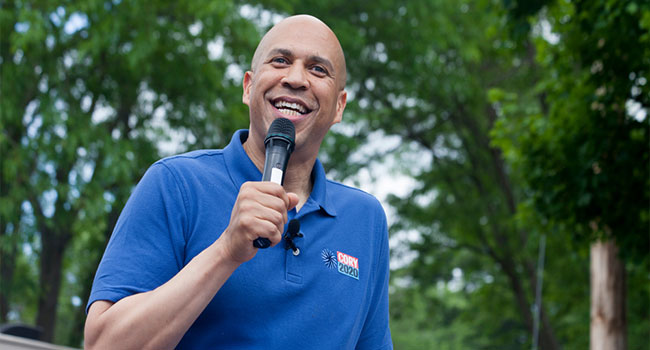
Booker Introduces Legislation to Ban Facial Recognition From Federal Public Housing
The senator and presidential candidate says that the technology needs “better safeguards” before it is deployed in housing.
- By Haley Samsel
- Nov 04, 2019
Presidential candidate Sen. Cory Booker introduced legislation on Friday that would ban facial recognition technology and other biometric tools from federally funded public housing.
The No Biometric Barriers to Housing Act is a companion measure to legislation already proposed by House Democrats in July. That bill was introduced by prominent House Democrats Ayanna Pressley of Massachusetts, Rashida Tlaib of Michigan and Yvette Clarke of New York.
All of the representatives argue that the use of facial recognition in security and access control systems at public housing buildings could violate tenants’ civil rights.
“Using facial recognition technology in public housing without fully understanding its flaws and privacy implications seriously harms our most vulnerable communities,” Booker said in a statement, pointing to research showing the software’s accuracy issues when identifying people of color and women.
Booker added: “We need better safeguards and more research before we test this emerging technology on those who live in public housing and risk their privacy, safety, and peace of mind.”
The senator and 2020 presidential candidate has been engaged in the facial recognition debate since at least July 2018. Alongside data security hawk Sen. Ron Wyden, Booker surveyed 39 federal law enforcement agencies about how they use the software and what policies they have in place to prevent abuse and misuse.
In a press release, Booker said he also secured language in the FAA Authorization Act in October 2018 that requires the TSA to report to Congress on methods to eliminate bias based on race, gender and age as the agency begins to deploy facial recognition across the country’s airports.
Booker’s announcement comes as critics of surveillance technology increase calls for bans on law enforcement use of facial recognition and regulations on how it can be used by police and private corporations. In California, Gov. Gavin Newsom signed legislation last month that bans the software in police body cameras, becoming the third state to do so.
In response, security companies and law enforcement groups have sent multiple letters to Congress urging regulation rather than banning use of the technology outright. Both private industry and police say facial recognition can be useful in identifying suspects as part of their tools to fight crime.
About the Author
Haley Samsel is an Associate Content Editor for the Infrastructure Solutions Group at 1105 Media.